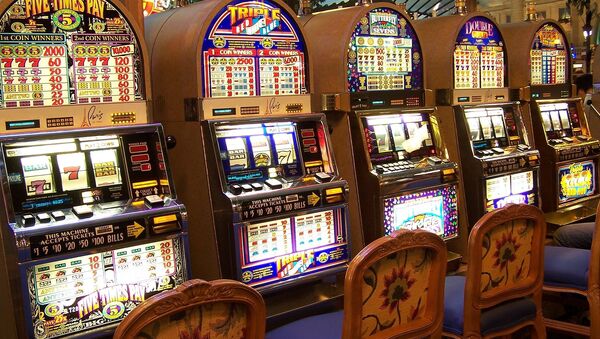Shonica Guy — whose gambling addiction lasted 14 years — alleges she was misled over her chances of winning by a leading casino chain in Australia and the manufacturers of a popular machine.
She insists the Dolphin Treasure poker machine gives players unrealistic expectations and breaches consumer law. Her allegations have been strongly denied by Crown Casino and the manufacturer Aristocrat.
Crown & A'crat "principle contraveners" in Fed Ct deceptive conduct case say lawyers for ex gambler Shonica Guy pic.twitter.com/9SQHCf8KR0
— Karen Percy (@PercyKaren) September 12, 2017
"This case isn't just about me, I want this to stop happening to other people. For too long now we've been told that it's our fault and we are the only ones to blame for 'pokies' addiction. I want this case to show that the machines are misleading and the industry knows that their machines are addictive and they are designed to get us hooked," Ms. Guy said.
'Losses Disguised as Wins'
Unable to comment directly on the Oz case, Simon Dymond, professor of Psychology and Behavioral Analysis at Swansea University, however revealed it was impossible to determine the ratio of pay-outs to spins.
"Our research and that of a great many other labs around the world has long investigated the features of slot machine games, usually referred to as 'pokies' that support and sustain extensive play. While the underlying schedules of reinforcement, or payout probability rules, operating on these machines are closely guarded industry secrets, we do know from lab studies with gamblers and non-problem gamblers that certain frequencies of outcomes and the physical format of displays can lead to gambling persistence," Professor Dymond told Sputnik.
"For instance, these machines, particularly modern multi-line slot machines, present 'losses disguised as wins,' which is where a losing outcome includes some sights and sounds resembling winning outcomes but with a lower return than the original stake. Such outcomes can perpetuate gambling, leading people to believe they are winning or at least 'almost winning'. A similar effect is seen with near-misses where a losing display is physically similar to a win (i.e., 2 out of three matching symbols on the payline) but where the amount staked is usually lost," he told Sputnik.
The right combination of near-misses, wins and full losses can contribute to gambling persistence and leads to erroneous thoughts about the player's role in determining outcomes, said Professor Dymond.
Betting is a national obsession in Australia, which boasts the world's highest gambling loss of US$1,130 per head annually, according to recent research by UK consultancy H2 Gambling Capital.
Australians spent more than US$19 billion on gambling in 2014-2015, with US$13 billion of that splashed out on 'pokies,' according to the Department of Social Services (DSS). It said one in six people who regularly play poker machines has a severe gambling problem, according to DSS statistics. Recent estimates suggest Britons lost £12.6 billion (US$16.6) through gambling last year, almost £300 (US$395) per person.
The case in Melbourne is expected to last three weeks.



